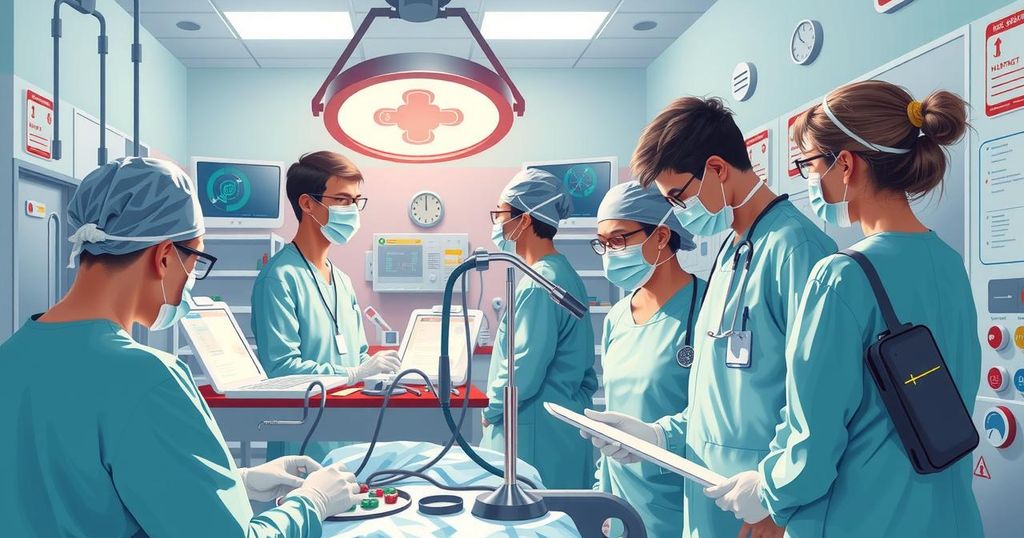Fall from Bed Leads to Life-Saving Diagnosis for 70-Year-Old Man in India
A 70-year-old man from Madagascar underwent a critical diagnosis and treatment for an abdominal aortic aneurysm following a fall from bed. After experiencing severe pain for two months, he sought care in India, where Dr. Ashank Bansal and his team performed a successful minimally invasive stent grafting procedure, enabling a swift recovery within days.
A 70-year-old man from Madagascar, Firdoche Houssen, faced a life-threatening situation following a fall from bed. After enduring severe abdominal pain for over two months, he sought treatment in India, where he was diagnosed with an abdominal aortic aneurysm (AAA), a dangerous condition characterized by a bulging main artery that could potentially rupture. A team at Masina Hospital, Byculla, successfully performed a minimally invasive stent graft procedure under the leadership of Dr. Abhijeet Soni and Dr. Ashank Bansal, ensuring a swift recovery for Mr. Houssen.
Initially, Houssen, a chronic smoker, dismissed the abdominal pain he experienced post-fall. However, as the pain worsened, he sought medical attention in Madagascar, where doctors recommended traveling abroad for advanced treatment. In India, Dr. Ashank Bansal evaluated him after a referral from Dr. Zainulabedin Hamdulay. A CT angiography confirmed the AAA, necessitating urgent intervention due to the serious risk it posed.
According to Dr. Ashank Bansal, AAA occurs when a section of the aorta weakens and bulges, which can lead to rupture and severe internal bleeding. The condition is often linked to smoking, high blood pressure, and genetics, yet many remain asymptomatic until a critical stage is reached.
The medical team opted for a stent grafting procedure, a minimally invasive method that bypasses the need for open surgery. Dr. Bansal explained that instead of a large incision, a 1 cm entry point through the artery was utilized to place a stent, which reinforced the weakened aorta. This approach considerably reduced recovery time, blood loss, and surgical risks.
Completed on March 3, the two-hour procedure allowed Houssen to begin mobilization the very next day and discharge him by March 5, showcasing the treatment’s efficiency.
Fatema Firdos Djaver, the patient’s daughter, expressed great relief over her father’s rapid recovery. She stated, “My father suffered for two months, and we were advised to seek advanced care in India or Reunion. Choosing India and meeting Dr. Ashank Bansal and Dr. Zainulabedin Hamdulay was life-changing. The procedure was quick, and his recovery has been remarkable.”
Houssen’s experience emphasizes the necessity of early diagnosis and access to advanced medical procedures. The successful treatment not only saved his life but also highlighted the critical role of minimally invasive vascular interventions in emergency cases.
In conclusion, Firdoche Houssen’s case exemplifies the critical importance of timely medical intervention and the advantages of minimally invasive techniques for life-threatening conditions. His recovery following the treatment for an abdominal aortic aneurysm reinforces the necessity for awareness about serious health issues and the availability of advanced medical care. The successful collaboration between medical professionals in India facilitated a life-saving procedure, highlighting advancements in healthcare.
Original Source: www.bwhealthcareworld.com




Post Comment